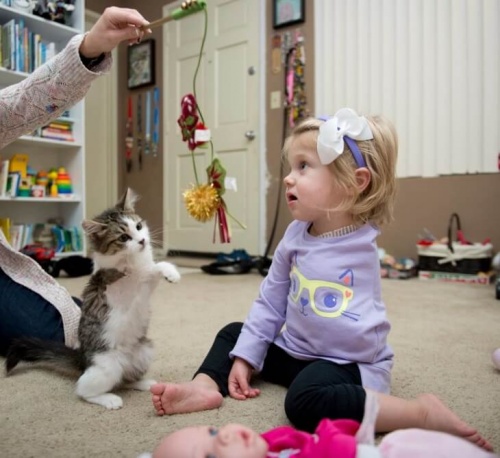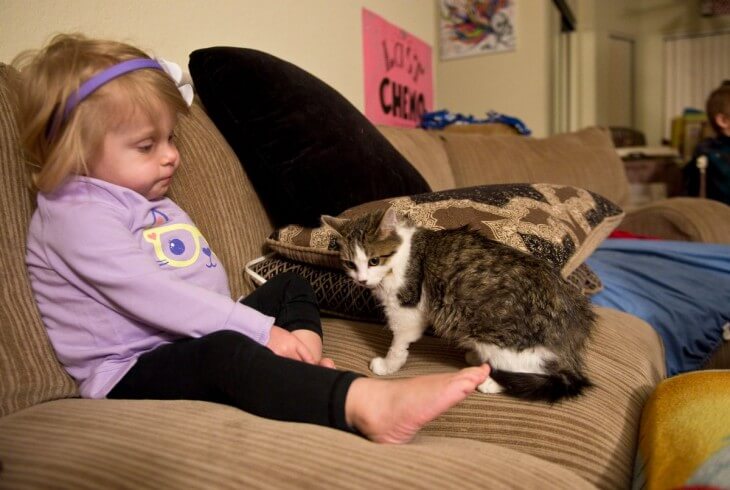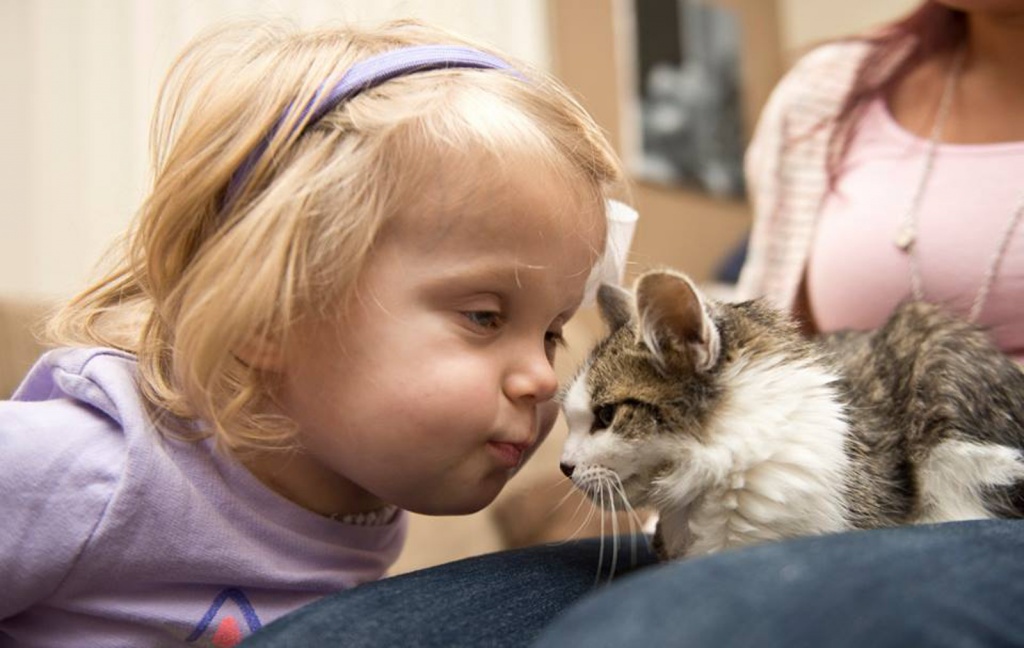3-Legged Cat is Adopted by Girl with Amputated Arm

Scarlette Tipton is a girl whose courage and determination helped her defeat a rare type of cancer. When she was only 10 months old, the disease made her lose one of her arms. Now she is a beautiful two-year-old girl that adores cats. She has adopted Doc, a kitten with an amputated paw due to sleeping underneath the hood of a car to keep warm. The Tipton family decided to adopt him, and the two have become best friends.
Doc has adapted very well to living with the family. He has limitations, but he is a very active cat that loves jumping over everything. However his favorite place to be is on Scarlette’s lap because they are best friends.
Animals as therapy

We know about the physical and psychological benefits of having a pet at home. As modern health has evolved, animals have started to be used for therapy. They can help people with physical problems, rehabilitation, adaptation and integration difficulties, social problems and mental illnesses, etc.
Animals encourage motivation and socialization, which is very useful for many people with psychological problems. Horses and dogs are the animals that are used the most. Dogs are an excellent resource for this type of therapy; they do activities with people that have communication problems. Horses also provide relaxation and very gentle movements for people with psychomotricity difficulties.
Besides horses and dogs, there are other animals that are used for therapy. The most well-known are dolphins, thanks to their gentle predisposition and treatment of humans.
A better quality of life with their best friends
Organizing activities with animals is about improving the quality of life for everyone. These activities could be for a person in particular, a group of people, or done with the help of monitors, trainers, etc.
However, health professionals are also getting involved to carry out treatments. They help get back the physical form, help with psychological illnesses, enhance the patient’s relationship with his environment, etc.
It is proven that petting an animal, especially if it’s a very receptive species such as dogs or horses, gives a lot of confidence and security, and helps regulate blood pressure.
Furthermore, relying on a pet gives responsibility to people with social problems, which makes them more positive and motivated. Older people also get many benefits from taking on this responsibility.
Benefits for children with their best friends
For school-aged children, activities with dogs help with better attention and concentration. This helps with studying and preparing quizzes and exams. And, with autistic children, etc. For some people, the dog can become an effective “link” between the world of patients, their mental isolation, and the world around them.
The innocent game created with dogs can create an important communication bond. This will influence social skills. In other words, the contact and interaction with the animal helps an autistic child discover emotions and perceive certain feelings that he couldn’t perceive in other ways.
Treatment for disabilities

Besides these benefits for certain mental illnesses or deficiencies, interacting with animals can also help the autonomy of children with physical or neuromuscular disabilities. A dog can work as a personal assistant. He can do basic activities like opening a door or getting an object, actions that the child is not able to do by himself or herself.
In addition to being intermediary rehabilitating agents, the dog also becomes an assistant for the children, improving their quality of life.
